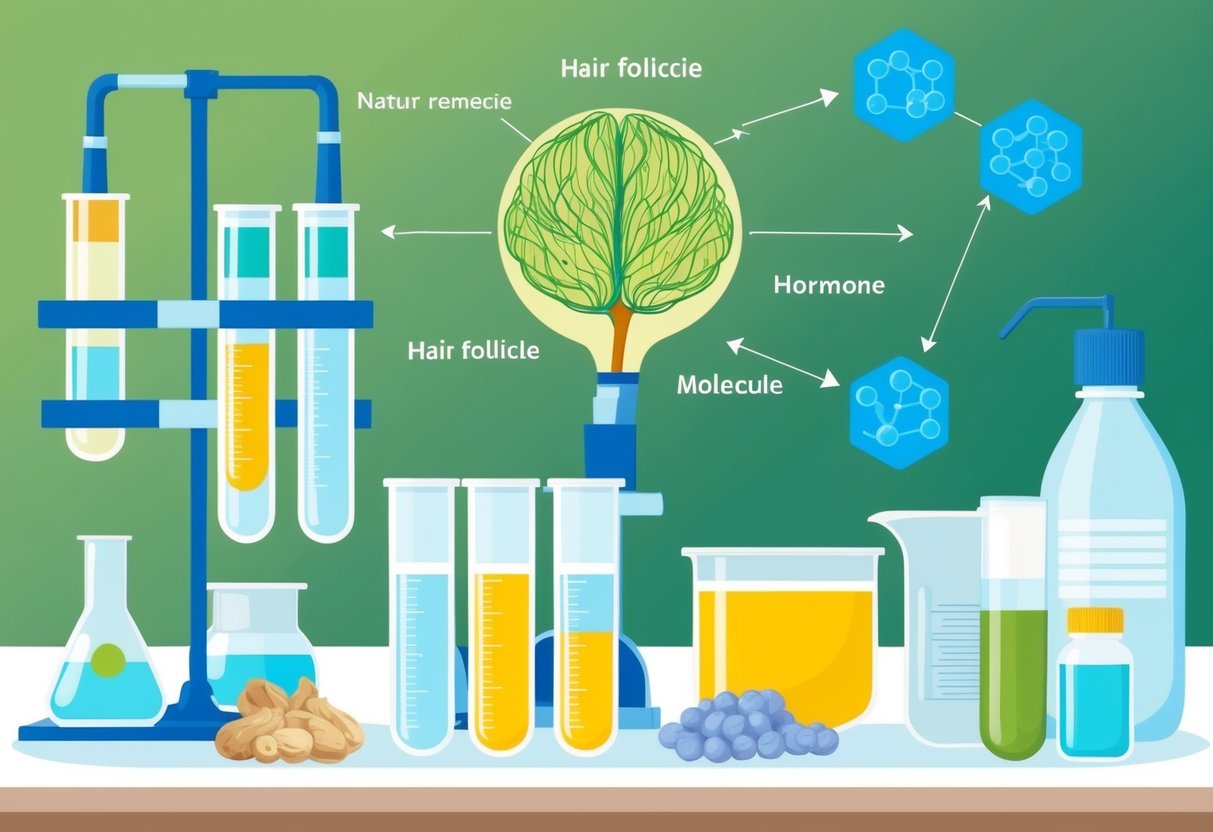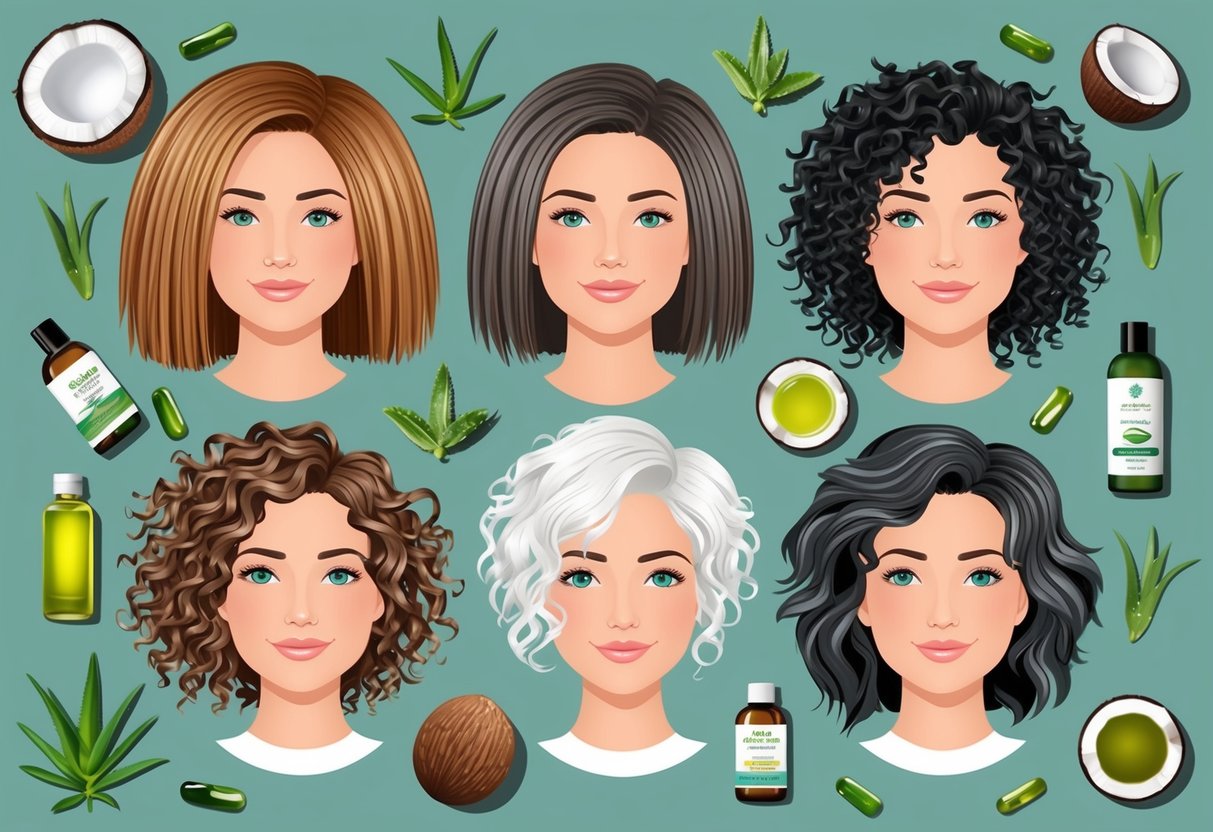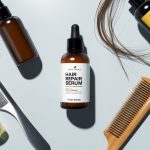How to Prevent Hair Loss Naturally: Tips, Remedies, and Products That Work
The Role of Hormones and Estrogen in Hair Loss

Fluctuations in hormones, especially estrogen, influence hair growth and shedding throughout different stages of life. Recognizing how hormonal imbalances and life changes impact the hair cycle is important for prevention and management.
Hair Loss During Pregnancy and Menopause
During pregnancy, elevated estrogen levels typically prolong the growth phase of hair, leading to fuller, thicker hair. After childbirth, estrogen levels rapidly drop, causing increased shedding or telogen effluvium.
This postpartum hair loss is common and often temporary, with most individuals regrowing lost hair within several months. Menopause causes a significant decrease in estrogen and progesterone, creating an imbalance with androgens.
This shift can lead to hair follicle miniaturization and a higher rate of hair thinning or loss. Many people notice their hair becoming finer and more brittle during this stage of life.
For more information about the relationship between hormone changes and hair follicles, see this overview on the effects of hormonal changes on hair follicles.
Other symptoms linked to menopause, such as hot flashes and sleep disturbances, may worsen stress-related hair loss.
Balancing Hormonal Levels Naturally
Supporting hormonal balance with lifestyle changes and natural remedies may help prevent or minimize hair loss. Regular exercise, adequate sleep, and a nutrient-rich diet are fundamental for maintaining optimal estrogen and hormone levels.
Foods high in phytoestrogens, such as flaxseed and soy, can offer mild estrogenic effects. Reducing stress through mindfulness, yoga, or meditation can help regulate cortisol, which interacts with estrogen and other hormones affecting hair follicles.
For those experiencing menopause or hormonal imbalances, natural supplements like saw palmetto or pumpkin seed oil may offer some benefits. More severe cases may require medical intervention or prescription therapies, as discussed in depth by Vibrant Dermatology’s guide to hormonal hair loss.
Anyone noticing persistent or severe hair thinning should consider consulting a healthcare provider to rule out underlying endocrine disorders and to receive personalized treatment options.
Addressing Nutritional Deficiencies

A well-balanced diet is essential for healthy hair growth and can prevent various forms of hair loss. Proper intake of nutrients such as iron, biotin, vitamin B12, and proteins are critical for supporting hair follicle strength and maintaining normal hair growth cycles.
Identifying and Treating Deficiencies
Hair loss may be linked directly to specific nutrient deficiencies, most notably a lack of iron, biotin, and vitamin B12. Each plays a unique role:
- Iron helps transport oxygen to hair follicles.
- Biotin supports keratin production, a key protein for hair structure.
- Vitamin B12 is crucial for red blood cell formation and cellular metabolism.
Symptoms like excessive shedding, hair thinning, and even brittle hair texture can indicate underlying deficiencies. Addressing these issues begins with dietary adjustments.
Foods like eggs, leafy greens, fish, and lean meats provide key nutrients to promote hair health. Those following vegan or vegetarian diets should pay attention to vitamin B12 and iron intake, as plant-based sources often provide less bioavailable forms.
Supplements may help when dietary changes are insufficient, but it is wise to consult with a healthcare professional before starting any regimen. For a more thorough overview on how nutrient shortfalls can trigger hair loss or thinning, visit this summary on vitamin deficiencies and hair loss.
Importance of Regular Health Screenings
Routine lab tests and medical evaluations can spot deficiencies before they affect hair growth. These health screenings typically measure serum levels of iron, vitamin B12, and other essential nutrients linked to hair loss.
Beyond basic blood work, a healthcare provider may recommend additional tests if risk factors exist, such as chronic illness or family history of hair loss. Both symptomatic and asymptomatic individuals benefit from regular screenings, as deficiencies are not always visible in early stages.
Health professionals can tailor treatment plans based on screening results. This helps individuals address dietary gaps effectively.
Proper monitoring makes it possible to adjust nutrition plans, add specific supplements, or modify medications as needed. For more about how nutrients impact hair health, detailed insights are available at Harvard’s hair loss and vitamins resource.
Preventing Hair Loss in Different Hair Types

Hair loss prevention works best when tailored to individual hair types and textures. The specific needs of curly, fine, oily, or textured hair often affect the effectiveness of hair loss remedies and daily hair care.
Customizing Hair Care Based on Hair Texture
Hair texture—whether straight, wavy, or coily—dictates which products and routines best reduce shedding and breakage. Gentle brushing with a wide-tooth comb helps minimize tension on the scalp, especially for those with thicker or tightly coiled hair.
Avoid over-washing, as this strips natural oils crucial for scalp health. Diet and hydration play a significant role in supporting all hair types.
Proteins, vitamins, and minerals support follicle strength, while avoiding crash diets helps prevent sudden shedding. Look for sulfate-free shampoos, lightweight conditioners, and deep-conditioning masks specifically labeled for your hair type, since harsh chemicals can weaken the hair shaft.
Heat styling and chemical treatments can be especially damaging to delicate hair types. Limiting use of hot tools or using a heat protectant spray can significantly reduce breakage and hair loss risk.
Special Considerations for Curly, Fine, or Oily Hair
Curly hair is more prone to dryness and tangling. Using leave-in conditioners, detangling sprays, and sleeping on silk pillowcases can help reduce friction and control frizz.
Regular trims and gentle detangling practices lower breakage rates. Fine hair requires lightweight products that do not weigh strands down or leave residue.
Opt for volumizing shampoos and conditioners, and avoid heavy oils or creams that may lead to limpness or buildup. For oily hair, washing with mild, clarifying shampoos and not over-stimulating the scalp helps control excess sebum that can block follicles.
Regular scalp massages improve blood flow, fostering a healthier environment for hair growth. Avoiding tight hairstyles and harsh treatments is recommended for all hair types to help prevent hair loss and maintain a healthy scalp.



